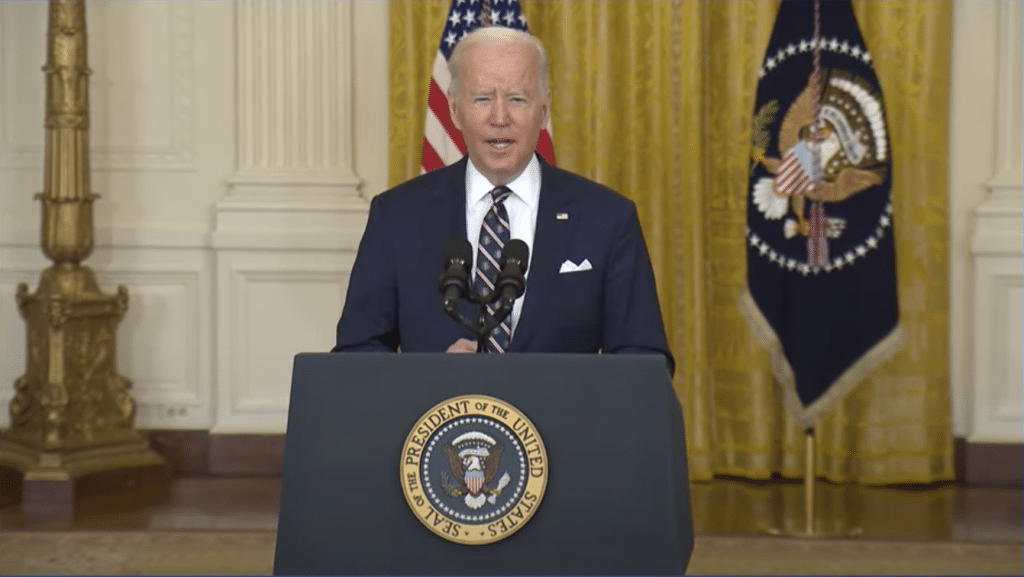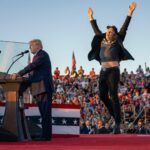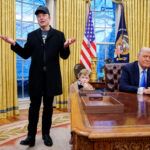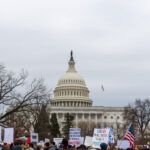Biden announces new sanctions, moves troops to Baltics. Will Putin order Russian troops further into Ukraine?
By Matt Field | February 22, 2022
 President Joe Biden announced new sanctions on Russia Tuesday, following Russia's recognition of two separatist regions in Ukraine. Credit: White House.
President Joe Biden announced new sanctions on Russia Tuesday, following Russia's recognition of two separatist regions in Ukraine. Credit: White House.
US President Joe Biden announced what he characterized as the first tranche of sanctions against Russian banks and financing capabilities Tuesday in response to Russian President Vladimir Putin’s decision to send troops into separatist enclaves in Eastern Ukraine. In his White House speech on Tuesday, Biden said the decision to send troops into Donetsk and Luhansk regions amounted to the beginning of the Russian invasion that the world has been anticipating for weeks.
Biden announced new sanctions targeting VEB, a major Russian bank, Russia’s military bank, and the country’s sovereign debt operation, meaning the Russian government would be cut off from Western financing. According to CNBC, the bank sanctions would prevent US institutions from processing the banks’ transactions and “effectively cut the banks out of transactions involving US dollars.” The United States has placed sanctions on VEB and Russian sovereign debt funds in the past, according to CNBC. How the new sanctions will affect Russia is not yet known.
The president’s announcement came after Putin’s government recognized the Donetsk and Luhansk People’s Republics, two regions where separatists have been fighting the Ukrainian government since Russia took over Crimea in 2014. The new sanctions are part of a raft of punishing economic moves by the United States and its allies, including Germany’s decision to pause a lucrative Russian gas pipeline.
During his speech, Biden wondered aloud what Putin could possibly think had given him “the right to declare new so-called countries on territory that belongs to his neighbors.” Biden said the Russian’s “flagrant violation of international law demands a firm response from the international community.”
Biden said that Russia appears to be “poised to go much further” in an attack on Ukraine. At least 150,000 troops remain on Ukraine’s borders, the president said. Offensive missiles and warplanes are stationed in nearby Belarus. Naval missile cruisers, submarines, and amphibious assault ships are maneuvering in the Black Sea south of Ukraine. And Russia has stationed blood supplies and medical facilities near the Ukrainian border.
Biden announced new movements of US troops and equipment to Estonia, Lithuania, and Latvia, saying the decision was taken for defensive purposes only. “We have no intention of fighting Russia,” the president said. “We want to send an unmistakable message, though, that the United States together with our allies will defend every inch of NATO territory and abide by the commitments we made to NATO.”
Biden promised more sanctions if Russian forces push further into Ukraine. These could include measures to cut off Russia’s access to advanced technology like aircraft parts and smartphones, as well as further actions that target Russia’s banks, according to CNN.
Meanwhile, German officials halted final approval for the Nord Stream 2, a completed natural gas pipeline from Russia to Europe that would provide billions of dollars to the coffers of Gazprom, a state-owned energy company in Russia. The United Kingdom also announced sanctions against Russian banks and wealthy individuals, according to CNN.
If conflict escalates in Ukraine in the future, the European Union may target SWIFT, the Belgium-based international service that facilitates bank transactions. In 2014, a former Russian finance minister, Alexei Kudrin, said he believed that such a sanction could shrink the Russian economy by 5 percent.
Russian officials have scoffed at the idea of more Western sanctions before, and, indeed, the country has been subjected to various sanctions since its invasion of Crimea in 2014. Since then, Putin’s government has worked to find alternative sources of products and to insulate the country from the economic impact of sanctions, although many Russians worry about the state of the country’s economy.
Putin gave what analysts are calling an angry and fiery speech Monday. Many read the speech as an attempt by Putin to lay the rhetorical groundwork for an invasion of the whole of Ukraine. Whether financial measures such as sanctions can deter Putin from going further into a country he called an “integral part of our own history, culture, spiritual space” remains to be seen
Together, we make the world safer.
The Bulletin elevates expert voices above the noise. But as an independent nonprofit organization, our operations depend on the support of readers like you. Help us continue to deliver quality journalism that holds leaders accountable. Your support of our work at any level is important. In return, we promise our coverage will be understandable, influential, vigilant, solution-oriented, and fair-minded. Together we can make a difference.
Keywords: Joe Biden, Ukraine, Ukraine crisis, Vladimir Putin
Topics: Analysis















